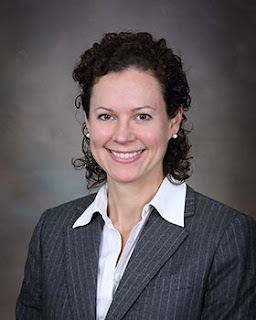Jimmy Carter passed away yesterday at 3:45 p.m. in Plains, Georgia, surrounded by his family. He was 100 years old. His impact on politics and human rights will endure forever. He was a man of the Georgia red clay. Born in 1924 in Plains, Georgia, which is minutes from my hometown of Oglethorpe, Carter grew up during Great Depression, under the reign of Georgia's infamous Governor Eugene Talmadge and Jim Crow. He graduated from Plains High School and in 1941, enrolled Georgia Southwestern State University. He later Georgia Tech before embarking on a promising career in the U.S. Navy.
In 1962, Carter ran for the Georgia State Senate against Homer Moore from Stewart County. Carter explained in "Turning" that in 1962, under pressure from the federal courts, each of the state 54 senate districts was redrawn and apportioned more equally in terms of population by the General Assembly, and election outcomes would be decided exclusively by winning a.
majority of the popular vote. Carter said this made a senate run “attractive” to political newcomers like himself.
Another key reason he ran for senate was a graduation speech he gave (likely in 1964) at Union High School in.which it had to do with his first political in July 1961 when he was the chairman of the Sumter County school board. At the time, led the pro-consolidation campaign in the countywide referendum.
After bypassing a run for Congress, he ran for Governor instead. He finished behind eventual winner Democrat Lester Maddox, Republican Bo Callaway, and former Governor Ellis Arnall, who ran as an independent.
In 1970, he ran again, this time against former popular Governor Carl Sanders Although he was victorious against Sanders, the primary was remembered for what was perceived as a race-baiting campaign against Carl Sanders.
Then in 1974, Carter announced he would run for President, in which he defeated Gerald Ford in the General Election. Carter's first term was mixed, dominated by inflation and an spiraling economy that he inherited from Gerald Ford and in addition the Iran Hostage Crisis in 1979. Some of successes were the creation the Department of Education and the 1978 Camp David Accords.
At the same that Carter to come to grips with international, he had to grapple with domestic ones passed on to him Ford. Unemployment, inflation, and the crisis the list. To the economy and supply more jobs, Carter in1978 proposed $23 billion to $30 billion program for the next eighteen. Although the program would increase spending on job-creating programs, it emphasized tax cuts to encourage businessmen to increase capital investments. Congress much of this economic stimulus package.
He also pushed for alternative energy, installing solar panels atop of the White House, national healthcare, among other things. In 1980 he went on to lose to Ronald Reagan in the General Election.
Carter returned to Georgia in 1981 thus began one of the most successful post-presidencies in modern history, from Habitat for Humanity to promoting peace and human rights around the world. Carter was the first Southerner to win the White House since Zachary Taylor 1849. He bridged the old guard segregationist Democratic Party to the new Democratic Party during the 1970s. He was a man of deep religious faith, a true Southern gentleman, a statesman, and a perfect example of what a public servant should be. He loved rural America, hunting, fishing, watching Atlanta Braves baseball games, and he loved the Lord.
He was an everyman: a farmer, Navy veteran, graduate of Annapolis, and businessman. He cared for the poor and was ahead of his time. He related to Black voters and their plight. He lived in public housing after he and his wife Rosalynn returned to Plains following the death of his father, James E. Carter, Sr,
who was a State Representative in the Geo
rgia State House. He was close to Martin Luther King, Sr., but remarkably, he never met his son, Dr. Martin Luther King, Jr. He was very close to many veterans of the civil rights movement, including Andrew Young, former Atlanta mayor, Congressman and U.S. Ambassador, and Ralph Abernathy.
His rise to 1600 Pennsylvania Avenue was a remarkable feat. Although he and his Georgia team were treated horribly by D.C. insiders and the Northern press, did the best he could despite half the Democratic Party plotting to defeat him in 1980 before he could even warm his seat in the Oval Office.
We will never see another like Jimmy Carter in my lifetime. He left a lasting legacy that history will view more favorably. Job well done, Mr. President.

















